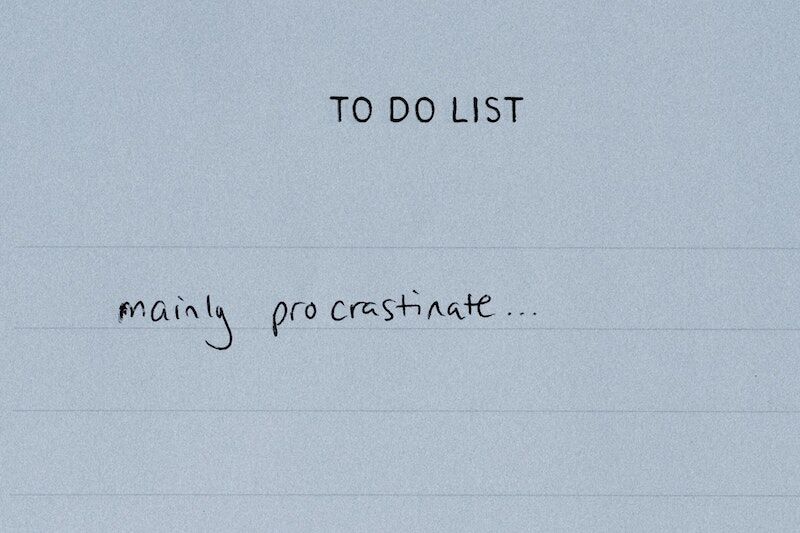I’ve been wanting to write a blog about procrastination, but have been putting it off. Seriously! With summer vacations, holidays, some family-related travel, and my natural tendency to wait until deadlines are staring me in the face, I was actually procrastinating about the work I needed to do to write about the topic. Then I came across a very interesting article in the Harvard Business Review, “How to Stop Procrastinating,” by Alice Boyes. In it, I read about one viewpoint in particular that has already helped me reduce procrastination.
Boyes writes about three factors driving procrastination — “The absence of good habits and systems (poor discipline), intolerance for particular emotions (like anxiety or boredom), and our own flawed thinking patterns.”
I can relate to all the factors, but one that really resonated for me was her discussion of flawed thinking patterns.
Reduce Procrastination By Understanding That We Often Make Work Harder Than It Really Is
More often than not, once I begin my work on a project or an assignment, things go just fine. I focus, enjoy my work, and get it done. It’s the getting-started part that’s tough for me. Can you relate? And the longer I put it off, the harder and more dreadful the work seems to me. It’s a vicious cycle of postponing the work and the work feeling more distressing and awful and onerous by the day.
Boyes writes, “To figure out whether cognitive blocks are contributing to your procrastination, ask yourself: Does the task feel more difficult than the steps objectively are, given my skills? Do I quite enjoy (or at least get a sense of satisfaction from) a task once I start it? If the answer is yes, it implies that you tend to think about work in a way that makes it seem more unpleasant than it actually is.
Yes! This is me!… So what can I do?
Tackle Your Project In Short Bursts
Something that is working well for me is to work briefly on a new project or assignment — instead of diving into the deep end of the pool, I wade in a bit, then get out. Part of this approach is adopting a “just get started” mindset. However, it is combined with working on the project for limited periods of time.
Once we confront our procrastination and start a project that we’ve been putting off, we often feel like we need to dig in and work on it all morning, or all day. How many times have you heard a colleague say, “I’m doing nothing this week but working on this project!” This simply reinforces procrastination. Who has all morning or all day to work on any one thing?
Reduce procrastination by working on your new project for 20 or 30 minutes. Then stop — even if it’s going well. Especially if it’s going well. Tomorrow, work on your project for a bit longer; perhaps an hour. Another day, another hour. Now you are more easily and gently 2-3 hours into your new project… And it’s really not as bad as you were dreading it would be, is it?
I invite you to think of one project or assignment where you might “just start,” and apply this technique!
Learn more about conquering procrastination, including “positive procrastination,” from Arden Coaching.
To learn more about how to change behaviors in a meaningful way, get things done, and develop your leadership skills, contact Arden Coaching at info@ardencoaching.com or 646.684.3777.

